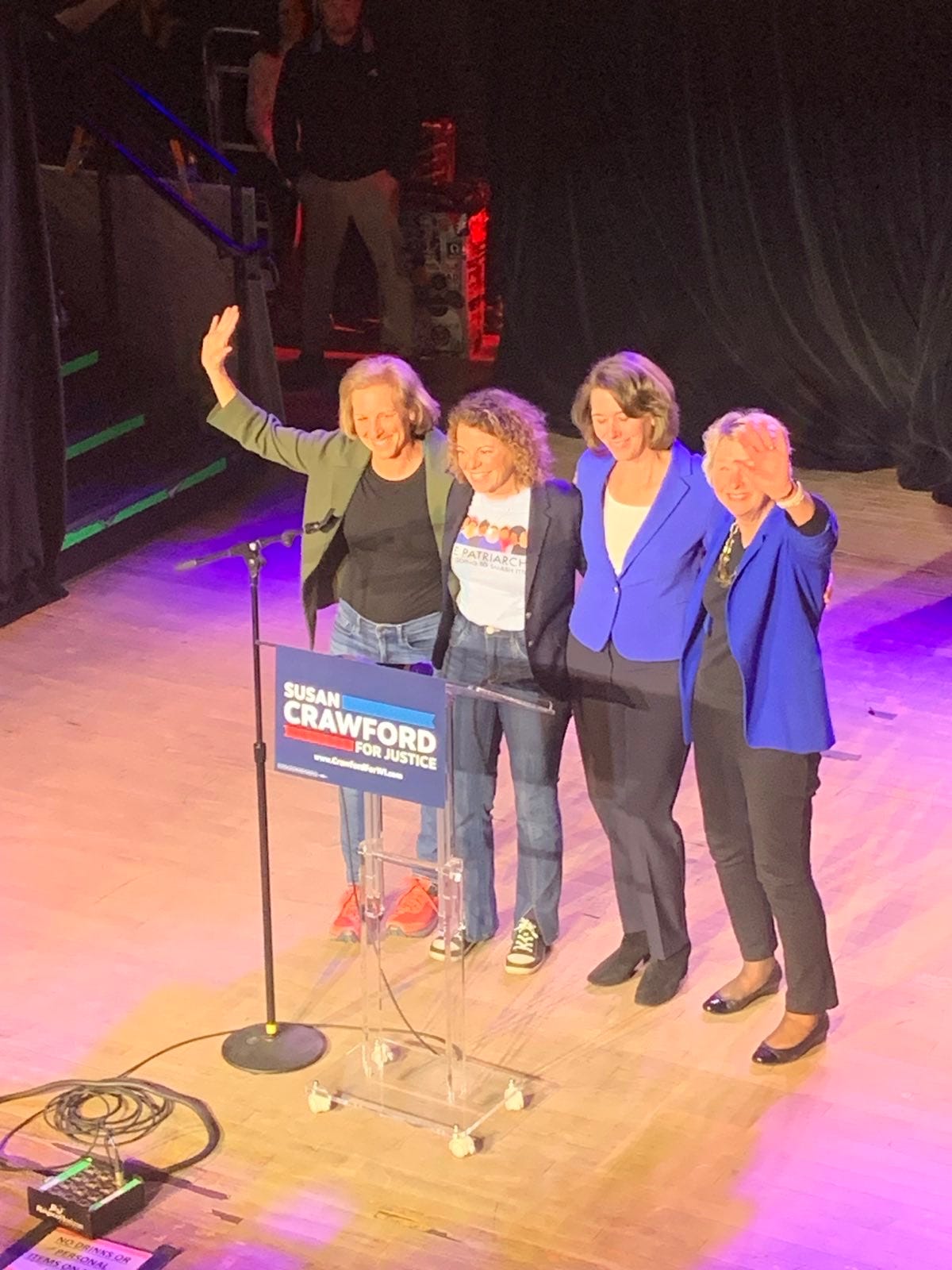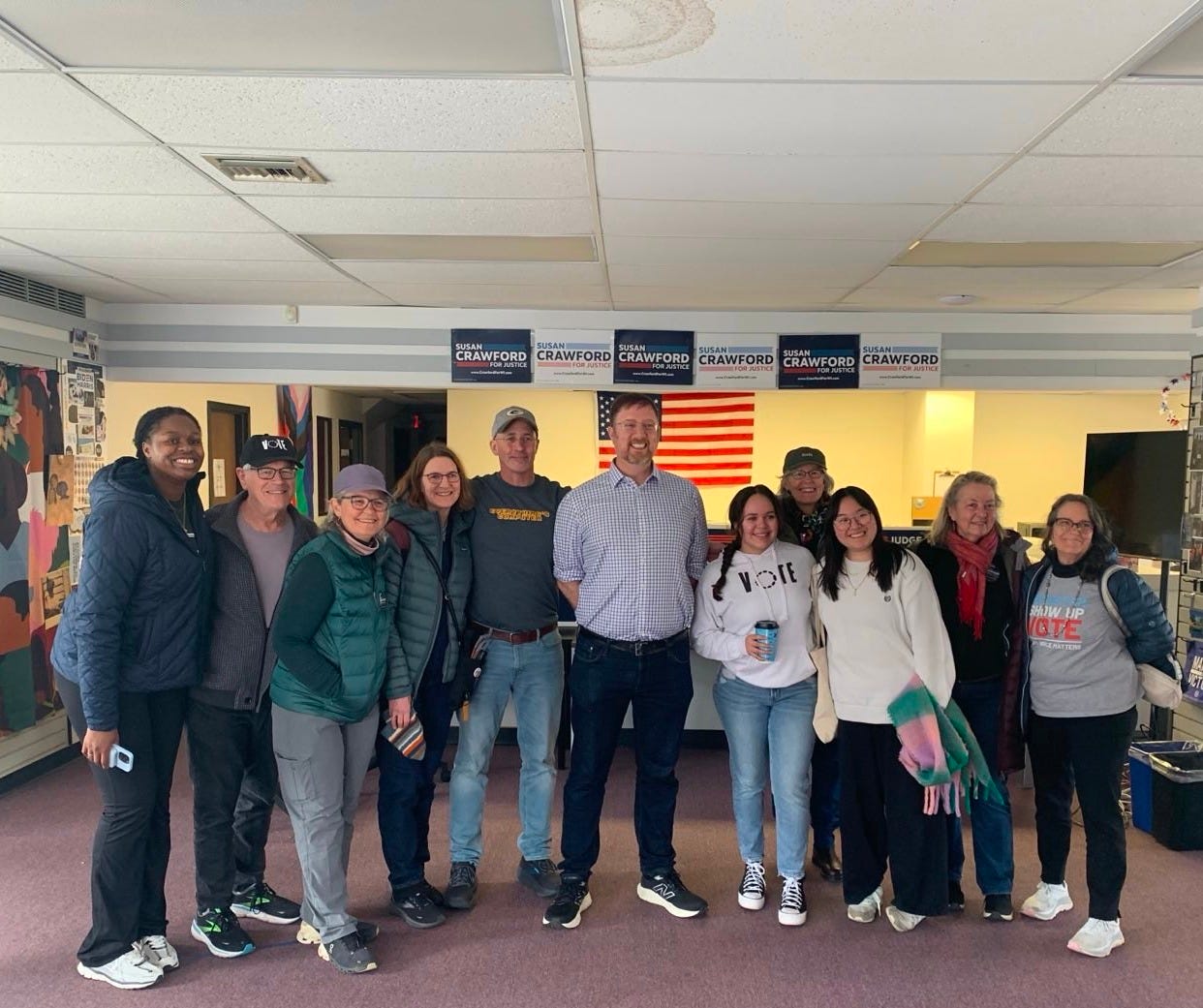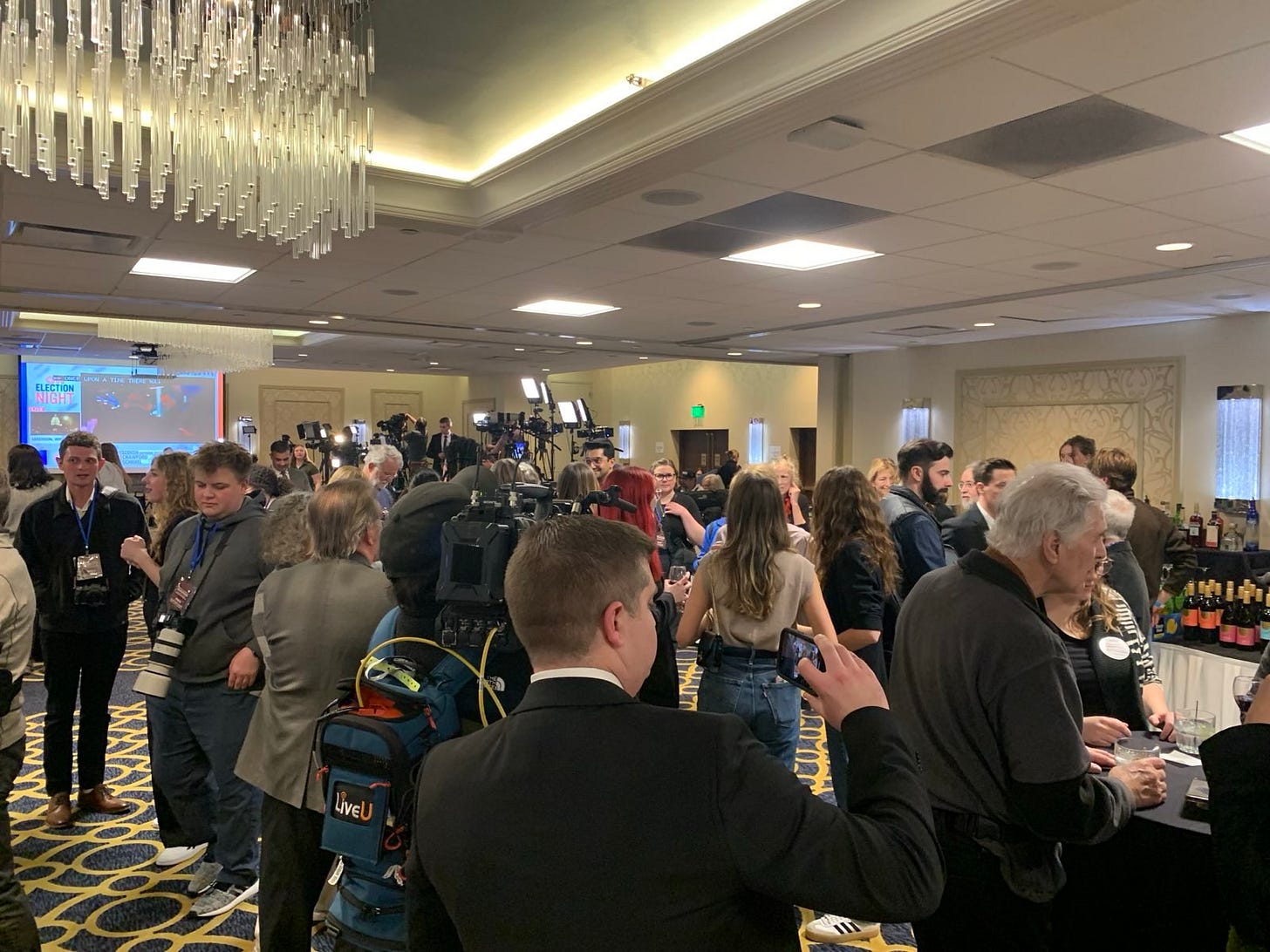News outlets nationally and even globally have spent weeks anticipating the profoundly consequential April 1st state Supreme court vote in Wisconsin—which has often served as the tipping point in U.S. elections. The linchpin of the ballot was the judicial race between liberal Judge Susan Crawford and conservative Brad Schimel.
State elections such as these rarely garner much attention beyond the boundaries of the state—so why did this one receive such scrutiny? Because of the grotesque and suspect amount of campaign finances devoted to it, and the influence of powerful individuals. Leading that charge was Elon Musk, who alone funneled over $22.6 million dollars into this race through his PACs America First and Building Back America–a contribution large enough to make this election the most expensive judicial race in national history.
In the end, the people of Wisconsin proved that their principles and indeed our democracy cannot be bought by million-dollar checks, issued by a man and an administration that is funding itself off the backs of everyday Americans.
The Contrarian recognized months ago what this election represented for the momentum of the Democratic party. We also realized—after interviews with Judge Crawford, Chair of the Wisconsin Democrats Ben Wikler, and pieces by WI Secretary of State Sarah Godlewski, Adav Noti, and a coalition of Wisconsin business leaders—that this election was about the people on the ground. For a campaign that has been fueled by grassroots efforts, as opposed to empty promises made from Mar-a-Lago, the only way to properly cover the will of Wisconsinites was to speak with them. Which is how I ended up spending the last two days shadowing the extraordinary efforts of the resilient Wisconsin Democrats.
27 hours before polls close
My first stop was a theater in Madison where Crawford was delivering her final speech on her Common Sense Justice Tour. For the prior 11 days, Crawford and her team had traveled more than 2,400 miles in 21 Wisconsin counties, rallying Democratic voters, explaining the stakes, and appealing to the best parts of our patriotic natures.
This address to local supporters took place in a quaint building with a modest stage located directly across the state’s capitol building. Chair of the WisDems, Ben Wikler, opened the speech to a boisterous crowd waving Crawford banners. Knowing his audience well, Wikler sharply critiqued Musk’s unsolicited involvement, “He bought Brad Schimel, and now he is trying to buy Wisconsin!” The crowd roared in disapproval.
His rousing speech was followed by that of Kalvin Barrett, the Sheriff of Dane County. His tone, though jovial and less laden with political fire, still offered a valuable punch. Playing to the crowd’s human-focused, authentic priorities–not to mention their leaning toward reproductive rights (just one of the many issues that this election has determined for the state) Barrett spoke of his family, “My two daughters believe Susan Crawford…and being a good person matters.”
Finally, Crawford took center stage. Carrying herself with both composure and confidence, she greeted the cheering crowd before describing her trajectory, what she stands for, and the receipts she has to prove it. “I worked to represent public school teachers when their rights were taken away…I represented Planned Parenthood, and your doctors,” Crawford said. And though she didn’t focus her speech on Elon Musk, she also showed that she wasn’t afraid to defend Wisconsin’s principles and pride, declaring, “He does not have the right to wear that cheese head!” (Referencing Musk’s last-minute, humiliating appearance at a rally, in which he donned the state’s telltale “attire” while brandishing his supersized checks. Compensating much?)
Leaving the event, the Wisconsin Capitol Building was framed in the light of the setting sun. There was hope in the air, tinged with the anxiety of uncertainty. Would the people of Wisconsin successfully deliver a rebuke and show the rest of the country that there are limits to what can be purchased, even for the richest man in the world?
10 hours before polls close
On election day, I arrived in Milwaukee and visited the local field office of the Wisconsin Democratic Party. A small group of volunteers were gathered there, all of whom (I would learn) came from the same pro-democracy organization, Common Power. Nearly a hundred volunteers from their Seattle-based organization had flown out to Wisconsin to knock on doors for the four days leading up to yesterday’s election.
When asked how they were feeling about the campaign, they responded with a flurry of anxiety-ridden answers, with the response “cautiously optimistic” being repeated the most. Many had devoted similar time and energy to the Harris-Walz campaign, which left them nervous about feeling too hopeful. Despite the specter of Harris’s defeat haunting the volunteers, overall they considered their efforts to be worthwhile. “Folks have been very receptive when they first see Susan Crawford,” about the reactions to their canvassing. But they also acknowledged the very strong reaction people had against Elon and Brad Schimel; hardly a surprise, considering how nationally unpopular Musk is.
Voters of all demographics had apparently been consistently voicing their concerns over the sweeping cuts to federal agencies that DOGE and Trump have been making over the past three months, particularly to social security benefits. The moral outrage of Musk wielding his unparalleled wealth as an election interference tool was a common theme: “[voters are] offended by Musk trying to buy a judge for his own purposes.”
Given that much of their time had been spent in Milwaukee’s sea of blue voters, there was some concern that their perspective was skewed. “I’m worried about the rest of the state and if we can be enough of a force to overpower all the red.” Such concerns are founded–Wisconsin is among our least predictable states, which is why so many elections have been split between the parties.
Wikler and his team then drove up to Cedarburg, a suburban town in Ozaukee county. Ozaukee is one of the “WOW” counties in Wisconsin (Waukesha, Ozaukee, and Washington)—which have historically voted deep red, but in recent elections have been turning a shade of magenta, say. Canvassing efforts have increased dramatically, with the knowledge that even the slightest uptick of Democratic voter turnout could have a massive influence.
We met with two candidates running for a seat on the Cedarburg School Board, Brooke Justinger and Heidi Laurila. Justinger and Laurila, along with Gina Tozer, had been campaigning together as a liberal bloc against three Republican candidates. The canvassing strategy employed by Wisconsin Democrats consists of targeting repeat Democratic voters along with individuals who have been marked as “undecided” based on public voting history. The goal is simple: remind voters the election is today, and please, please vote blue!
After thirty minutes of walking the chilly streets, only two people opened their doors. Both claimed that they already voted Democrat all the way down the ballot. For doors that were knocked but remained unopened, literature on the candidates was left behind, in hopes of making an impression that would count.
2 hours before polls close
Members of the press (including this Substack correspondent!), were given early access to the conference room (“Crawford HQ”) where the results would be announced. In the backdrop, CNN coverage was projected onto two large screens. At the forefront, an empty stage displaying the American and Wisconsin state flags was waiting for Judge Crawford to give one of two speeches: with nothing less than the political temperature of the American people soon to be taken and shared with the world.
The nervous tension pulsing through the room was palpable. I sat next to a kind, soft-spoken freelancer who predicted that, even if Crawford did win, Trump would attempt to sabotage her victory in some fashion. Members of the public started trickling in throughout the hour, adding even more part giddy/part nervous energy to the room.
Results
Though it felt far longer, within 43 minutes following the polls closing, Dave Wasserman, a known political analyst, tweeted “I’ve seen enough: Susan Crawford defeats Brad Schimel in the Wisconsin Supreme Court election.” Too cynical to trust one person’s claim and recalling the deceitful polls that projected a win for Harris, I quickly dismissed the social media post as hasty.
I began pacing the room among members of the public, Democratic volunteers, and staffers. Suddenly, whispers that MSNBC had called the race in Crawford’s favor began spreading throughout the crowd. One overzealous staffer started jumping for joy. More and more faces began turning towards the two giant screens displaying the ballot tallies. It was confirmed: Crawford had been projected as the winner. Not long after, Schimel offered a remarkably swift concession.
When the newly confirmed, most recent Wisconsin Supreme Court Justice Susan Crawford walked into the room, her family proudly following in her wake, the room exploded with deafening cheers of uninhibited delight and relief. Even after taking the stage, the crowd refused to settle until the need to express their joy had been satiated.
Speaking with a confidence that can’t be bought, Judge Crawford addressed the crowd with words of hope, morality, and integrity,
“Justice does not have a price. Our courts are not for sale.”
Many have spoken of this race as a referendum on Musk; democracy vs. oligarchy; workers vs. money. In this inaugural referendum, Elon Musk and his pal lost to the democracy we are all fighting so hard to keep. Let’s keep the momentum going.
New Jersey and Virginia, I’ll see you soon.








Excellent first person article by Lily Conway. She expressed the human angst of an unknown contest, one that desperately needed too be won.
Nicely written. I voted for Susan Crawford from abroad. I'm overjoyed that there is hope, but still a long fight ahead to get my country back.